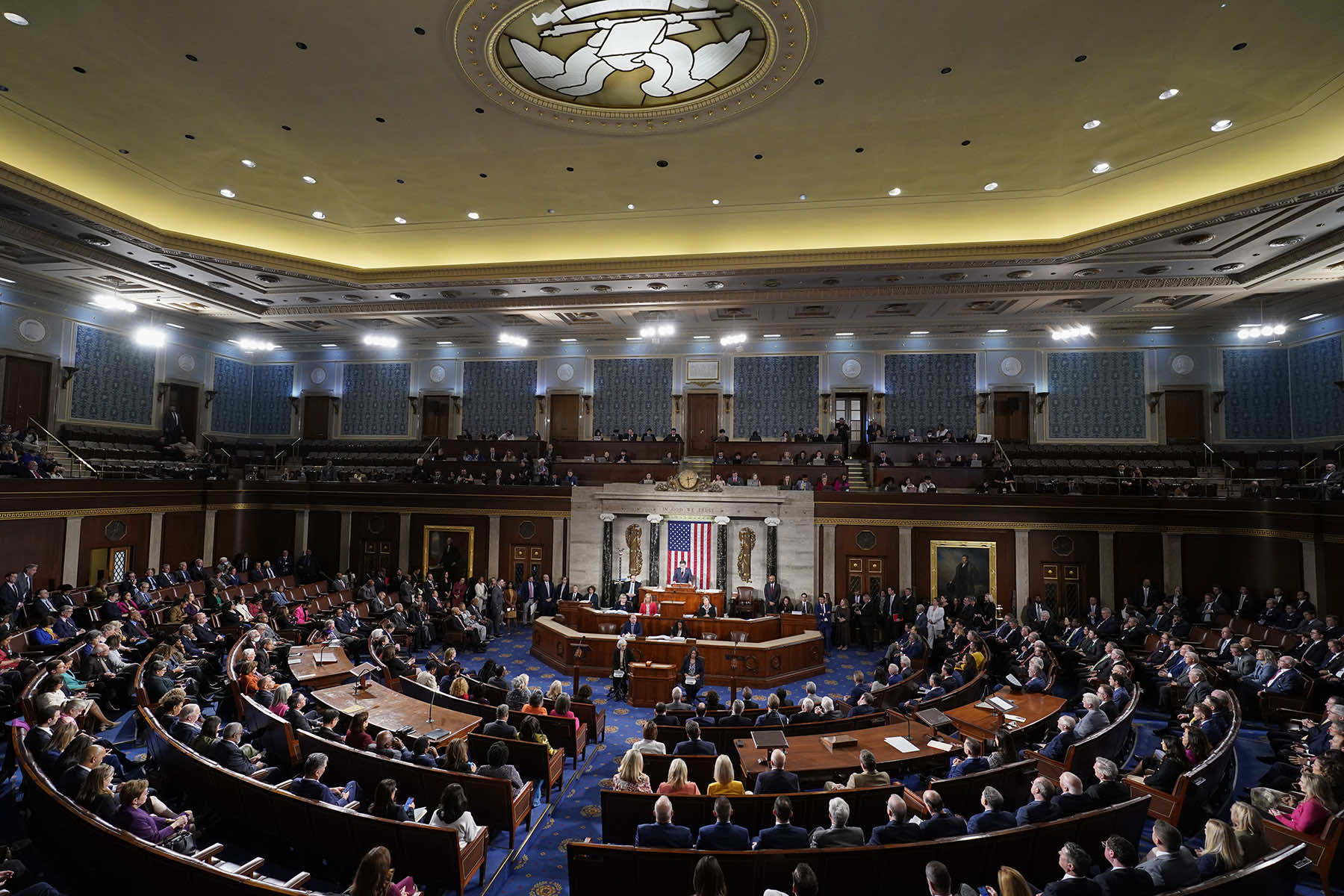
The Republican-dominated House of Representatives remains unable to agree even to a way forward toward funding the United States government. This is a five-alarm fire.
The continuing resolution for funding the government Congress passed in September when then–House speaker Kevin McCarthy (R-CA) could not pass appropriations bills runs out on November 17. If something is not done, and done quickly, the U.S. will face a shutdown over Thanksgiving.
This will not only affect family gatherings and the holiday, it will hit Black Friday — which, as the busiest shopping day of the year, is what keeps a number of businesses afloat. The problem with funding the government is the same problem that infects much else in the country today: far-right Republicans insist that their position is the only acceptable one.
Even though the majority of the country opposes their view, they refuse to compromise. They want to gut the government that regulates business, provides a basic social safety net, promotes infrastructure, and protects civil rights.
To impose their will on the majority, they do not have to understand issues, build coalitions, or figure out compromises. All they have to do is steadfastly vote no. If they can prevent the government from accomplishing anything, they will have achieved their goal.
Senator Tommy Tuberville (R-AL) perfectly illustrated how much easier it is to destroy than to build as he objected to the promotion of military leaders, one at a time. Democrats tried to bring up each promotion of career military personnel, many of whom have served this country for decades, by introducing them by name; Tuberville had only to say “I object” to prevent the Senate from taking up those promotions.
That refusal to budge from an extreme position weakens our military. It also weakens our democracy, as was apparent in Michigan as Republican lawmakers joined an antiabortion group in suing to overturn a 2022 amendment to the state constitution protecting abortion rights. Voters approved that amendment with 57% of the vote in a process established by the state constitution, but the plaintiffs want to stop it from taking effect, claiming that by creating a new right, it disfranchises them and prevents the legislature from making laws. They could launch their own ballot initiative to replace the amendment they don’t like, but as that seems unlikely to pass, they are instead trying to block the measure the voters have said they want.
The decision of Ohio’s voters to protect abortion rights on November 7 has prompted a similar disdain for democracy there. The vote for that state constitutional amendment was not close—56.6% to 43.4%—but Republican legislators immediately said they would work to find ways to stop the amendment from taking effect.
North Dakota state representative Brandon Prichard was much more explicit. Opposed to the measure, he wrote, “Direct democracy should not exist…. It would be an act of courage to ignore the results of the election….” According to James Bickerton of Newsweek, Prichard has previously called for Republican-dominated states to “put into code that Jesus Christ is King and dedicate their state to Him.”
Now that refusal to compromise threatens the U.S. government itself. It has been apparent that the Republicans were unable to agree on a funding plan even among themselves. On November 7, as Nicole Lafond of Talking Points Memo pointed out, House speaker Mike Johnson (R-LA) said Americans should just trust the Republicans. He told reporters: “I’m not going to tell you when we will bring [appropriations bills] to the floor, but it will be in time, how about that? Trust us: We’re working through the process in a way that I think that people will be proud of…. [M]any options…are on the table and we’ll be revealing what our plan is in short order.”
Although the House managed to vote on a series of extremist bills designed to signal to their base —l owering the salaries of government officials they dislike to $1 a year — the House Republicans had to pull the Financial Services and General Government appropriations bill after extremists loaded it with antiabortion language so they could not get the votes to pass it even through the Republican side of the aisle; earlier they had to pull the bill to fund Transportation, Housing and Urban Development, and related agencies.
“We’re still dealing with the same divisions we always have had,” a House Republican told Sahil Kapur, Scott Wong, and Julie Tsirkin of NBC News. “We’re ungovernable.”
And then, after pulling the bill, Speaker Johnson adjourned the House until November 13. As Representative Abigail Spanberger (D-VA) put it this afternoon: “We are just 8 days away from a devastating government shutdown — and instead of working in a bipartisan way to keep the government open, Speaker Johnson sent Congress home early for the weekend. This is completely unacceptable.”
Representative Ted Lieu (D-CA) wrote: “The training wheels fell off for [Republican] leadership. They tried to pass two appropriations bills. They failed twice. The government shuts down in 8 days and [the House Republican Party] HAS NO PLAN. Instead, we voted on stupid stuff today like reducing the salary of [the] W[hite] H[ouse] Press Secretary to $1.”
The problem remains what it has been since the Republican Party took control of the House in 2021: far-right extremists refuse to agree to any budget that does not slash government funding of popular programs, while less extremist Republicans recognize that such cuts would gut the government and horrify all but the most extreme voters. In any case, measures loaded with extremist wish lists will not pass the Senate; this is why appropriations bills are traditionally kept clean.
Former House speaker Kevin McCarthy hammered out just such an agreement with the administration in May 2023 for funding, but the extremists refuse to honor it. For their part, Democrats are holding firm on that agreement. House minority leader Hakeem Jeffries (D-NY) told NBC News correspondent Julie Tsirkin that “[a] clean continuing resolution at the fiscal year 2023 levels is the only way forward… We’re asking for the status quo to keep the government open.”
The government budget is not the only casualty of the Republican chaos. The farm bill, which funds agricultural programs and food programs, must be renewed every five years. The measure authorized in 2018 expires this year, but extremists are eager to slash funding for Supplemental Nutrition Assistance Program (SNAP) benefits, formerly known as food stamps, endangering the passage of a measure farmers strongly support.
And the Defense Department pleaded with Congress on November 9 to pass the supplemental budget request President Biden made in August to fund Ukraine’s military needs in its war against Russian aggression.
The Republican Party’s problem continues to be America’s problem, and it is getting bigger by the day.
J. Scott Applewhite (AP), Alex Brandon (AP), Jose Luis Magana (AP), and Jacquelyn Martin (AP)
Letters from an Аmerican is a daily email newsletter written by Heather Cox Richardson, about the history behind today’s politics

















